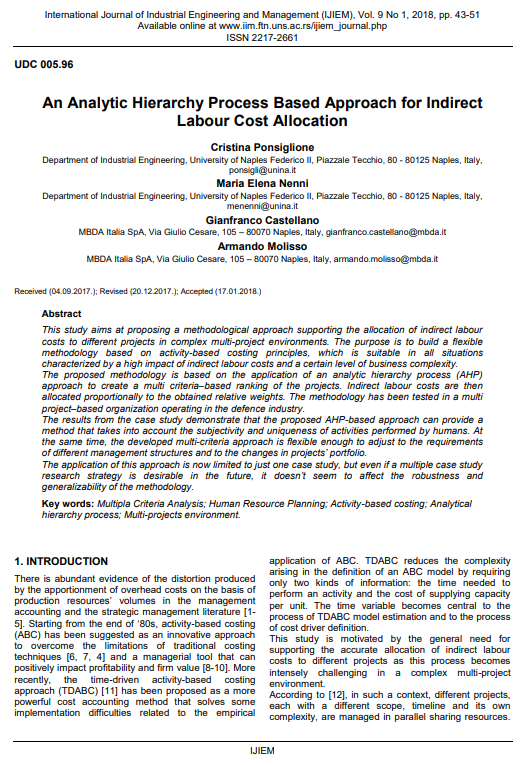An Analytic Hierarchy Process Based Approach for Indirect Labour Cost Allocation

Published 2018-03-30
abstract views: 42 // FULL TEXT ARTICLE (PDF): 0
Keywords
- OMultipla Criteria Analysis,
- Human Resource Planning,
- Activity-based costing,
- Analytical hierarchy process,
- Multi-projects environment
How to Cite
Copyright (c) 2023 International Journal of Industrial Engineering and Management

This work is licensed under a Creative Commons Attribution 4.0 International License.
Abstract
This study aims at proposing a methodological approach supporting the allocation of indirect labour costs to different projects in complex multi-project environments. The purpose is to build a flexible methodology based on activity-based costing principles, which is suitable in all situations characterized by a high impact of indirect labour costs and a certain level of business complexity.The proposed methodology is based on the application of an analytic hierarchy process (AHP) approach to create a multicriteria–based ranking of the projects. Indirect labour costs are then allocated proportionally to the obtained relative weights. The methodology has been tested in a multi project–based organization operating in the defence industry. The results from the case study demonstrate that the proposed AHP-based approach can provide a method that takes into account the subjectivity and uniqueness of activities performed by humans. At the same time, the developed multi-criteria approach is flexible enough to adjust to the requirements of different management structures and to the changes in projects’ portfolio.The application of this approach is now limited to just one case study, but even if a multiple case study research strategy is desirable in the future, it doesn’t seem to affect the robustness and generalizability of the methodology.
Article history: Received (04.09.2017); Revised (20.12.2017); Accepted (17.01.2018)

